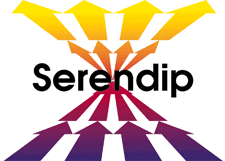
 |
Education and Technology:
|
|
Web as Information Resource for Faculty/Students
Theory (from Education and Technology Directory Page): The disorder of the Web is one of its greatest virtues. As a fundamentally decentralized system of information exchange, it makes available, to a much greater degree than any prior human institution, the widest possible array of information/ideas/perspectives in a diversity of forms which, for the first time, approximates the diversity of human users. |
Serendip's Experiences:
Serendip's Commentary:
The web both encourages and requires individual responsibility and critical judgement in the process of acquiring information as well as in the process of evaluating and synthesizing it.
Serendip's Pedagogical Musings:
Neither awareness of the rich array of materials available on the web nor sophistication in its use should be presumed for students (or anyone else). Classroom time is well spent in activities that encourage students to become more familiar with the web and its potentials. This means, among other things, encouraging students to "surf" rather than to use th web at the last moment in ways they might use the library or other media.
Two issues that deserve additional particiular attention are developing text searching skill on search engines, and developing the skills of reading critically across wide arrays of material so as to not to fall back on "authority" as a replacement for individual judgement.
A problem to keep at eye out for: students (and others) who use web materials as "sources" rather than as stimuli for their own thinking and, for this reason, may overuse quotations and, inadvertently or not, plagiarize materials published on the web.
Examples, exercises, and additional resources:
Further Questions:
How does one make the web better?
How does one other make media and classrooms/libraries better?
How does one best make discriminative use of various information sources including the web? [an error occurred while processing this directive]